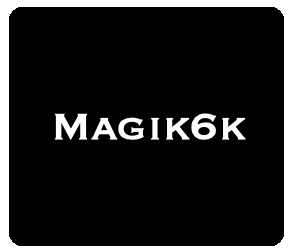The DePIN Vision: Insights from Lukasz Magiera
Welcome and thank you for sitting down with us. You have an expansive vision of compute and storage. Can you explain this vision and what drives it?
5 min read
 Daniel León
:
Jul 9, 2024
Daniel León
:
Jul 9, 2024
The reference architecture achieves significant improvements for Filecoin network storage providers by reducing compute infrastructure by a factor of four.
JULY 9, 2024 - The Decentralized Storage Alliance (DSA) is proud to announce the release of a storage reference architecture for the Filecoin network that achieves significant improvements for network storage providers.
This innovative architecture makes use of the Seagate Exos CORVAULT technology in conjunction with OpenZFS to reduce compute infrastructure by a factor of four or more while also increasing data integrity and network resiliency. These improvements also make it far more economically viable to onboard all current and future commercial-grade storage loads.
The reference architecture was created by a team of storage experts from Seagate, Web3Mine, and Klara Inc. and is detailed in their recently released white paper, “Scaling Filecoin for Commercial-Grade Loads: Using Seagate Exos CORVAULT technology on OpenZFS.”
The Decentralized Storage Alliance (DSA) brings together technology industry leaders to help enterprises make the transition to decentralized storage technologies through reference architectures, standards, education, advocacy, and best practices. This work was part of a DSA initiative to provide storage providers with improved solutions that improve storage performance and are most resource efficient and cost.
Storage Reference Architecture Overview
Filecoin storage is a very well-structured storage format as a consequence of the zero-knowledge cryptographic algorithms that underpin its immutable proofs of unique replication across space and time. This facility allows for globally distributed, verifiable, cryptographically unique replicas across network nodes in a cost-effective and performant manner. Improvements can be made, however, using existing file systems in combination with advanced storage hardware to gain even greater performance and resilience.
The Zetabyte File system (ZFS) is unique in that it has a 20-year history that demonstrates the ability to scale into the 10s of petabytes efficiently range for direct- attached storage solutions. Combining the OpenZFS protocol with very large defect-free, SAN-like volumes from Exos CORVAULT presents a unique opportunity for the decentralized storage ecosystem to reduce compute infrastructure by a factor of four or more all while increasing resiliency in the process. This combination will reduce costs for storage providers in the Filecoin network and accommodate commercial-grade storage loads for existing web2 applications and future AI or web3 data loads.
Reference Architecture Highlights
Seagate Exos CORVAULT
The CORVAULT family of Seagate platforms combines certain key ideas learned from software-defined storage platforms such as OpenZFS, CEPH, and Lustre and combines them with Seagate’s unique insight into the optimal operational characteristics of individual drives. As such, the Exos CORVAULT platform is uniquely qualified to serve as a compute-offload engine for massive, direct-attached disk arrays.
This platform combines the best of proven software-defined storage algorithms with Seagate’s intrinsic domain expertise of hard drives to maximize longevity and performance in ways no third party can do with generic device models. As all the disk aggregation and management is done in hardware, the host is no longer bound by how many disks it can manage and still performs useful work. The Exos CORVAULT platform solves the scaling problem by performing disk aggregation, defect management, and cache management at the enclosure controller level instead of relying upon host compute and IO resources in other solutions. The resulting output is storage in the form of very large block volumes. The benefit of this approach is that compute resources per petabyte are dramatically reduced, as is the complexity of the IO interconnects.
OpenZFS
OpenZFS is an advanced open-source file system and volume manager technology designed for managing and protecting large amounts of data. It originated from the ZFS (Zettabyte File System) project, which was initially developed by Sun Microsystems and later open-sourced by Oracle. OpenZFS was created as a community-driven effort to continue the development and improvement of ZFS independent of Oracle.
OpenZFS is increasingly used in enterprise and commercial-grade environments due to its robust features and capabilities. Of particular note are accommodations to address the specific storage needs and data integrity requirements of large, on- premise data infrastructure. Today, you’ll find it used to implement everything from most SMB NAS systems to the backing storage for the world’s largest high- performance super-computer Lustre file systems.
Why OpenZFS has Become the Default Filesystem for the Filecoin Network
For the reasons stated above, OpenZFS has quickly become the default file system for the Filecoin network. The OpenZFS file system ensures, above all else, end-to- end data integrity. CRC checksums are used to detect silent data corruption with every IO operation to and from the storage subsystems to the data landing in host memory. The evolution of OpenZFS also post-dates most conventional RAID topologies and so many of these prior solutions – which promised to be the answer to solve the biggest data challenges – do not take full advantage of ZFS capabilities.
OpenZFS is making great strides in fulfilling this promise for direct-attached storage. OpenZFS can offer the functionality of most legacy RAID systems but in ways that are not bound by the fixed topologies of traditional RAID configurations. One example is the ability to detect silent data corruption and silently perform inline data repairs, in line. Another is offering the storage architect the ability to construct VDEVs stripes that load balance IOPs.
White Paper Overview & Implementation Notes
The reference architecture was created by a team of storage experts from Seagate, Web3Mine, and Klara Inc. and is detailed in their recently released white paper, “Scaling Filecoin for Commercial-Grade Loads: Using Seagate Exos CORVAULT technology on OpenZFS.”
Download the white paper
Note: The white paper is focused on a high performing storage array that is compatible with Filecoin network. It is not offering specific recommendations on the Filecoin node server infrastructure. Storage providers should implement their Filecoin node servers based on the most current state of Filecoin compute architecture as well as their specific business needs.
For more information about the reference architecture, please contact:
Rob Wilson
Rob.wilson@seagate.com
Paul Woods
Paul.woods@seagate.com
About Decentralized Storage Alliance
Decentralized Storage Alliance (DSA) is a professional organization launched in October 2022 by a community of companies who imagine a better path to storing data through decentralized storage solutions. Its charter is to drive industry growth, bridge the gap between Web2 and Web3 storage technologies, and highlight advances in technology and the work of its members.
About Seagate
Seagate Technology is the leading innovator of mass-capacity data storage solutions. We create breakthrough technology so you can confidently store your data and easily unlock its value. Founded over 45 years ago, Seagate has shipped over four billion terabytes of data capacity and offers a full portfolio of storage devices, systems, and services from edge to cloud. To learn more about how Seagate leads storage innovation, visit www.seagate.com and our blog, or follow us on X, Facebook, LinkedIn, and YouTube.
About Klara Inc.
Klara is a leading provider of enterprise services and support for open source infrastructures. Talk to us about OpenZFS, FreeBSD and embedded development and services. Our mission is to support every open source-fueled enterprise. Our story is deeply rooted in community values, driving technology for the better of all. Our value proposition to our customer is a transparent, efficient and radically different way of working on projects and infrastructure. We provide our customers an extensive portfolio of custom system design and development services that approach complex and multidimensional IT challenges from a business perspective. For more information, visit https://klarasystems.com/
About Web3mine
Web3mine is a web3 infrastructure designed to safely and securely store humanity’s most crucial data by enabling its members to earn high yields by staking into the best storage providers in the Filecoin ecosystem. For more information, visit https://web3mine.io/

Welcome and thank you for sitting down with us. You have an expansive vision of compute and storage. Can you explain this vision and what drives it?

Sealing Optimizations Release (GA) open sourced and ready for testing.
Select ZK Proof Advancements Now Integrated in Filecoin